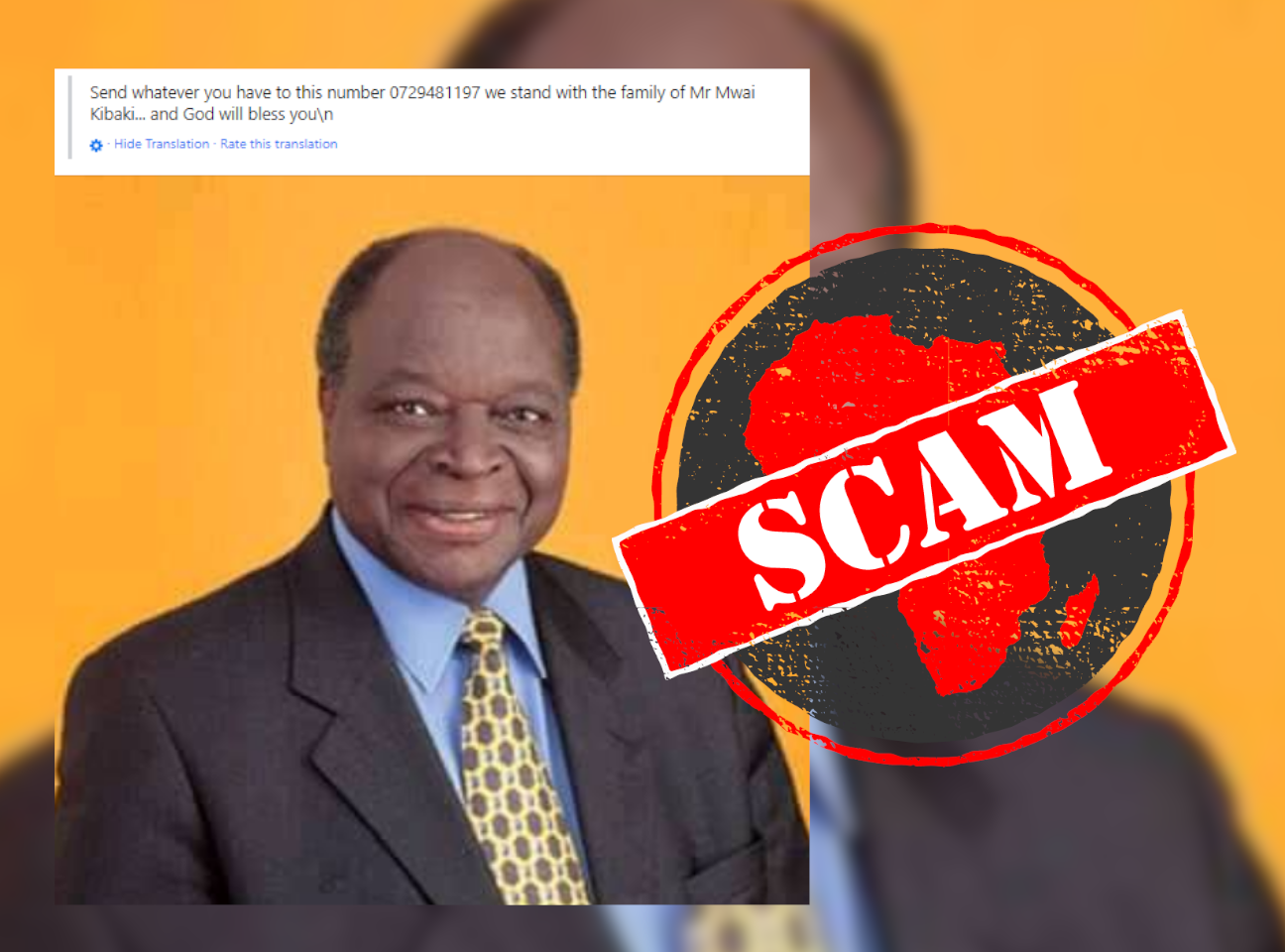Social media platforms such as Facebook are often used to raise funds for good causes, such as appeals for help with medical costs. But some users post fake fundraising appeals to scam people.
On 22 April 2022, Kenyan president Uhuru Kenyatta announced the death of his predecessor Mwai Kibaki.
Soon after, a user on Facebook posted an announcement on a public Facebook group page with more than 91,000 members, asking for donations. A screenshot of the post has also been posted on the platform.
“TUMA Chochote uko nacho kwa hii number 0729481197 tusimame na familia ya Mzee mwai kibaki...na mungu atawabariki,” the post reads in Kiswahili.
This translates as: “Send anything you have to this number 0729481197. Let's stand with the family of Mzee Mwai Kibaki ... and God bless you.” The post includes a photo of Kibaki.
But is the fundraiser for his family legit?
We checked.

No announcement of fundraiser by government or family
There has been no announcement of the fundraiser from the government. The president has said there will be a state funeral for Kibaki, at the government’s expense. All former presidents in Kenya are entitled to a state funeral.
We attempted to send a small amount to the number in the Facebook post to identify its owner on the M-Pesa mobile money platform.
The line is registered to “Zakary Wekesa”, not a known relative of the ex-president. The family spoke through Kibaki’s eldest son Jimmy Kibaki, and he didn’t make any announcement of a fundraiser.
For more information, read our detailed guide on how to spot scams on Facebook.
Republish our content for free
For publishers: what to do if your post is rated false
A fact-checker has rated your Facebook or Instagram post as “false”, “altered”, “partly false” or “missing context”. This could have serious consequences. What do you do?
Click on our guide for the steps you should follow.
Publishers guideAfrica Check teams up with Facebook
Africa Check is a partner in Meta's third-party fact-checking programme to help stop the spread of false information on social media.
The content we rate as “false” will be downgraded on Facebook and Instagram. This means fewer people will see it.
You can also help identify false information on Facebook. This guide explains how.


Add new comment